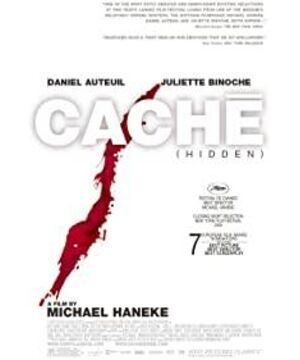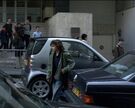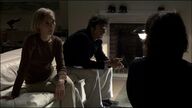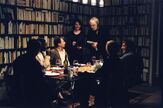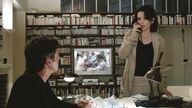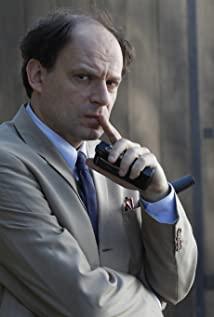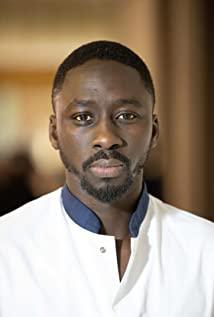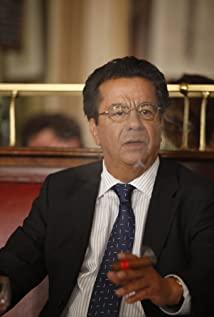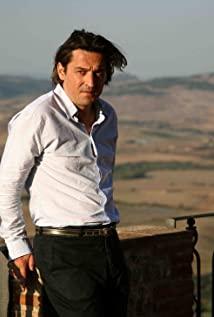"Hidden" is the fourth French film filmed by Austrian director Michael Hanek. It is starred by French actor Daniel Odouyi and actress Juliet Binoche. The British "Guardian" commented that this film is "the first great movie of the 21st century". It should be said that this assertion is not an exaggeration. In this film, Michael Hanek indirectly refers to a disgraceful page in French history: the Algerian War. Although during the reporter’s interview, Haneke thought it was a very personal film. The film told the story of a man. This story is related to the murder of Algerians in Paris in 1961, but it is not a film. All of it is not a story about France and Algeria. When talking about whether a country should reflect on its history, Haneke said: “Every country has a hidden and forgotten history. Every country has it, including Germany, Austria or China.”
The film "Hidden" tells that George accidentally forced his childhood friend Markid to commit suicide for the safety of his family. He subjectively assumed that Markid was the mastermind in filming their lives. When his son Pierrot suddenly disappeared, George called the police to suspect that Markid had kidnapped his son in retaliation, resulting in both Macid and his son being arrested. However, such suspicions and accusations deprived Markid of the opportunity to defend himself. In order to restore the lost dignity and prove his innocence, Majid chose to cut his throat in front of him. However, after the death of his father, George immediately pointed the suspicion towards his son. This bigotry and prejudice caused irreversible consequences and caused George to fall into endless distress and self-blame. He had to take sleeping pills to fall asleep. When the family is harassed, the head of the family must find ways to ensure the peace of the family, and the child disappears and asks the police to intervene. This is understandable. Anyone in any country will do the same. Macede’s son redressed his father’s grievances, and it was reasonable to retaliate against the enemy who caused his father to drop out of school and lose his life. The problem is that the methods used by both sides are too biased, which has resulted in tragedy. From the film, it is not difficult for the audience to see that the cause of this tragedy is not just the contradiction between the two families, but the deeper social problems.
It is worth thinking about, there are two camera sets at the end of the film: Pierrot spent the night at his classmate’s house, and the next morning, the classmate’s mother sent him home. After returning home, Pierrot said nothing. Anna never asked the reason for not returning all night. Instead, Pierrot said to his mother: "You know the reason better than me." After that, she ran back to her room. And George didn't ask why his son left home at all. Later, Pierrot lived in the country's grandmother's house. Why did he leave his parents? When his parents took him home, he ran away without getting into the car. When George caught him, he shouted "Let me go! Let me go!" George forced him into the car before he had to follow his parents. The last long shot is more meaningful. At the gate of the school, Macede’s son and Pierrot talked for a long time. Although we could not hear what they said, we saw that both of them were very serious. We don't think it's hard to guess the strangeness of this.
Michael Hanek is a famous Austrian director and screenwriter. He was born in a family of artists, his father was an Austrian director, and his mother was a German actor. He grew up in a film atmosphere. At first he worked as a drama director. Later, he wrote and directed many in the 1970s and 1980s. TV and film, once selected for the "Fifteen Directors Award" for the "Trilogy of Human Nature". His previous works "Funny Game" (1997), "Unknown Code" (2000) and "Piano Teacher" (2001) have all been shortlisted for the Cannes Film Festival competition. Among them, "Piano Teacher" won the Best Actor, Actress and Jury Awards at the Film Festival. And "Hidden" also earned him the Best Director and International Film Critics Fabisci Award at the 2005 Cannes Film Festival.
At the beginning of the film, the audience saw that George received inexplicable video tapes and bloody pictures every afternoon. He must be the same as the protagonist in the film. They were puzzled. When the tape that led him to Lenin Avenue, it indicated that he had arrived here. The street has to turn to the right, and then go upstairs. When it comes to No. 407, the audience's curiosity will be more mobilized, but George Rowland is in No. 407, thinking of his childhood in the nightmare. It seems that behind the camera is not the eyes of the director, but the will of God. At this time, the degree of suspense has almost reached its peak, but director Haneke is not eager to solve the mystery, but to lead the audience to a deeper level. That is the main theme of the film: through him and the adopted brothers. The contradictions of the time make people think about the Algerian War, which is a topic that the French do not want to touch up to now. With the passage of time, people must reflect on history. Even if some great figures in history are involved, there will always be someone who criticizes General de Gaulle as an anti-fascist hero. In dealing with the problem of Algeria, he has also adopted a sharp knife to cut the mess. It promoted the independence of this former colonial country, but in certain practices, especially those "black-footed" officers, also sowed the seeds of long-term disharmony and even hatred between the French and Algerian nations. The contradiction between George and Markid at that time led to the tragedy of suicide for the Arab child to drop out of school and spend his whole life in poverty. Macede’s children continue to hate the wealthy French class represented by George, all because of this root. Seeing his childhood partner commit suicide, George had mixed feelings, full of guilt and self-blame, and he was in common sense. The long-term suffering caused by colonialism to the people of the world should be remembered by the post-agents of these nations, and those with conscience must also arouse the people and try their best to repay this sinful debt. Director Haneke is a man of foresight and a strong sense of justice. Although this film does not directly touch on historical issues, his intentions are already very clear. His sense of justice and courage to cross the forbidden area of the mine pool are respectable. There are very few films involving Algeria, the "forbidden zone". I remember that only in 1963, Aaron Renai made a film called "Muriyere". The film flashback described the story of French soldiers gang-raped and killed an Algerian female guerrilla. In this film, Haneke also recalls Renai through the protagonist (the former lover of the protagonist Muriel), inserting military news shot by Europe and the United States in the Middle East, insinuating that some poor people hate Western civilization. Terrorist activities. This is exactly the same as in the story of this film that George Rowland suspects that Markid will harm his family. The director let the audience in Thinking about it, how did the poverty of those backward countries cause it? Markid was deprived of his right to education and fell into poverty today. Whose responsibility is it? If the father died unjustified, can the son seek revenge without being full of hatred? Although who filmed the video tape, the film did not reveal the mystery at the end, but this is self-explanatory. If the director tells the audience who is the producer of the videotape, it must be superfluous. Leave a suspense and let the audience think about it for themselves. It has always been a tradition in French cinema. Don't think of the audience as an idiot. If you are too straightforward, you won't be an art.
In this film, Haneke seems to be questioning contemporary media. There are endless variety shows on TV that "candidly film" other people's privacy and "hide the camera". Roland and his wife both work in the media, but they are secretly filmed. Distress, isn't it a great irony?
View more about Caché (Hidden) reviews


